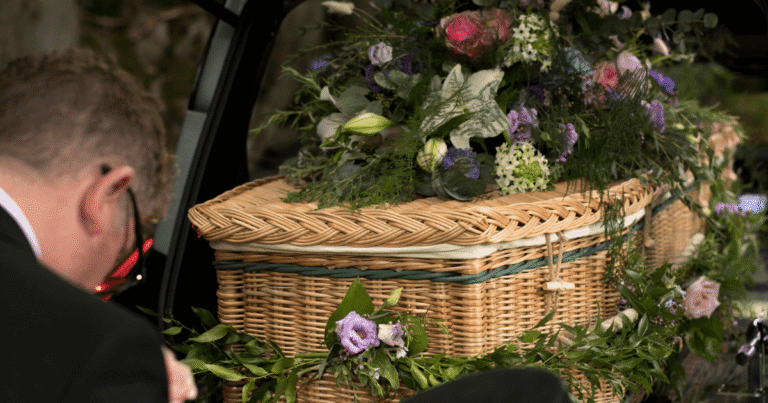A wake is also known as a funeral reception. This is an event held after the funeral where close friends and family will gather to pay their respects, quite often held over a drink or seven. Quite often, the wake is arranged by the family for most, if not all, of the mourners to participate in, as well as for some people who were unable to attend the funeral service. Food and drink are optional, but most of the time are catered by either the location of the wake or the mourners.
Quite often during the funeral service, the celebrant or minister will lead the service, and sometimes not everyone can share memories and stories of their late loved one. The wake is where those who didn’t have a chance to share their stories get their opportunity.
A wake isn’t essential for a funeral, quite often during the lockdown, people weren’t able to have wakes, so it wasn’t uncommon for people to hold wakes on a different day after lockdown or not to have one at all.
When arranging a funeral wake, there are some factors to take into account. Firstly, the number of guests to attend the wake, whether that be everyone who attended the funeral or on a smaller, invite-only basis. Location will be the next part to arrange, you will need to make sure that the location of the wake will have enough space to hold the number of guests you are anticipating as well as this keep in mind that the location of the wake may not be able to provide food and drink so you may need to hire caterers externally.
Traditionally, a wake was a vigil held before the funeral, often taking place in the deceased’s home or that of a family member. It was a time for prayer and reflection, with friends and relatives keeping watch over the body. In modern times, the concept has evolved, and wakes are now more commonly informal social gatherings that focus on celebrating the person’s life rather than solely mourning their loss.
Wakes can take place in various locations, such as a family home, a community hall, a pub, or even a favourite spot of the deceased. The atmosphere of a wake can vary depending on cultural and religious traditions, as well as the family’s preferences. Some wakes may be solemn and reflective, while others may take on a more celebratory tone, featuring music, food, and storytelling.
Food and drink are often served at a wake, providing comfort and encouraging conversation among attendees. Guests may share anecdotes, photos, or keepsakes that highlight the life and legacy of the person who has passed away. It’s also common for people to express their condolences to the bereaved family during this time.
Ultimately, a wake is a significant ritual that brings people together to support one another, share memories, and pay tribute to the life of the person who has passed away. It serves as a meaningful way to begin the healing process and keep the memory of the deceased alive.
As always, if you have any questions or need any clarity, please speak to your local funeral director for any advice or answers.




